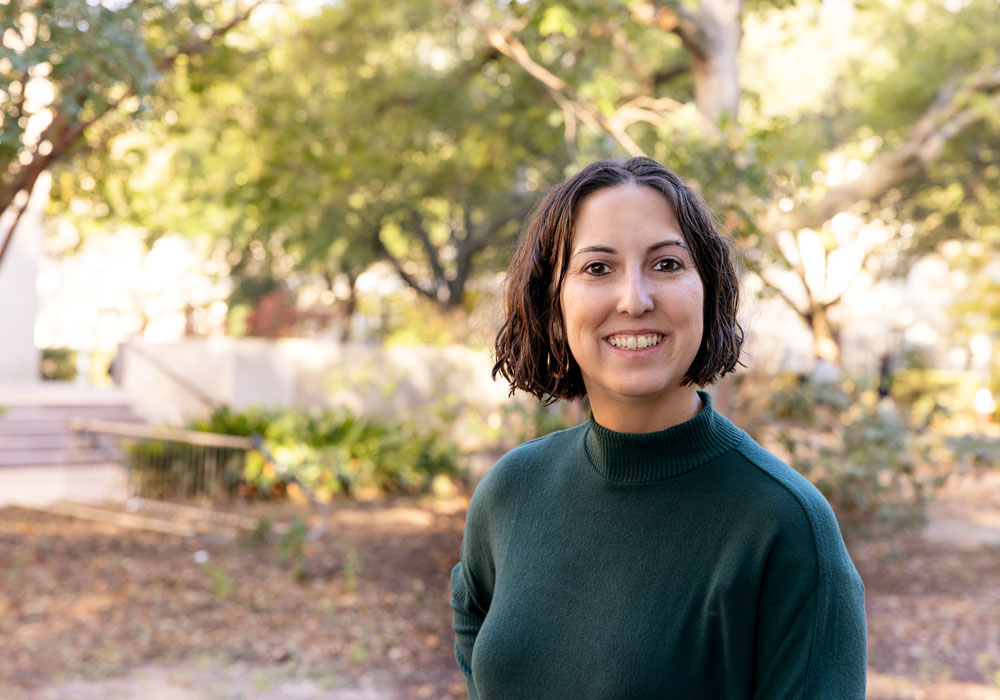Lots of people like to party, but few have found a way to make a career of it.
To be clear, Emily Ruth Allen isn’t a full-time partyer — she’s an instructor of music and music history with a dual appointment in music and Southern studies. But she has a particular interest in parties — specifically, in the culture of Mardi Gras and more generally in festivals and celebratory rituals.
For Allen, it all started as a clarinetist in her high school marching band.
“The foundational years for me — getting into music and to where I am now — have to do with my years that I lived in Alabama,” says Allen, who came to the University of South Carolina from Florida State University in 2023.
Each year, the band played Mardi Gras parades. For her, the experience was transformative. She loved the atmosphere, the community and the tradition of it all.
The more I started thinking about what I’m interested in, [Mardi Gras] explains a lot about who I am.
“That whole stretch from Galveston, Texas, through around Pensacola, Florida, has a vibrant Mardi Gras tradition in all the cities along that coastline. So, that was something that was a very long tradition — every high school band in the city was required to do at least two Mardi Gras parades. Marching in the Mardi Gras parades in those years was informative for both my performance, and also now my research trajectory.”
As she has reflected on that experience, she realized that it wasn’t just about Mardi Gras, but about communal celebration more generally.
“The more I started thinking about what I’m interested in, [Mardi Gras] explains a lot about who I am,” she says. “I enjoy festivals, or anything that’s sort of celebratory in nature. I love dressing up for Halloween. I’ve always enjoyed going to concerts. I like going to football games, which is also another kind of festive space. So, I just enjoy these communal, celebratory rituals.”
Still, it’s the culture around Mardi Gras that has captured a fair amount of Allen’s scholarly attention. People associate Mardi Gras with New Orleans, and rightly so. But Allen’s scholarship emphasizes the wider regional impact of the culture.
“It’s important to recognize that it’s a shared heritage across that Gulf Coast region, and not just New Orleans,” she says. “Obviously, New Orleans is the main reference, but there are a lot of smaller traditions that are worth looking at, as well. I think the larger point is that people should be aware of this broader heritage in that region. I call it the Mardi Gras Belt.”
At South Carolina, Allen has been able to seamlessly meld her interests in music and Southern history by being part of two colleges. In the School of Music, she teaches one course on the history of rock ‘n’ roll and another on popular music from the late 1800s to the present. In Southern Studies, she teaches a 20th century Southern history survey and a class on popular music of the U.S. South, which brings her interest in music and Southern history together.
“I like having a foot in both areas,” she says. “Having gotten my degrees in musicology, the School of Music side is nice and familiar to me — it feels more intuitive and natural to me. I like going to the recitals and concerts, and I like getting to know my music history colleagues. And then what I like about Southern Studies is the interdisciplinary and collaborative nature of it. I think both my teaching and my research are benefiting from being in the College of Arts and Sciences, which gets me out of my comfort zone a little bit.”
